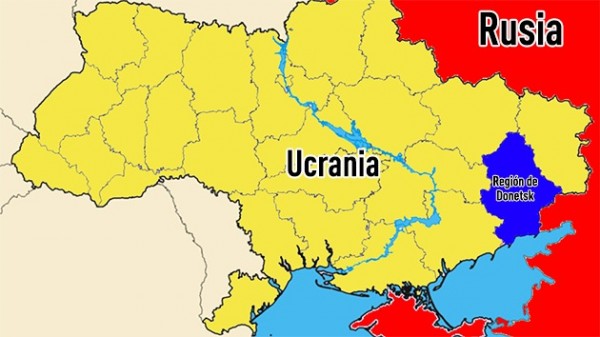
Ukraine, a country friend

In a previous work we summarized the colonial situation of the Canaries[1] under the Spanish colonialism. Now we report on the shameful documents from the United Nations about the Spanish justification of the colonialism. The United Nations Charter (The Charter) provided especially for the liberation of all people under colonial domination through the exercise of their right to self-determination (a right that, however, denies the Spanish constitution) it constitutes a threat to the well-being of humanity and to international peace. The Special Committee of Six, in the light of the factors annexed to General Assembly resolution 742 (VIII), had established twelve principles which affirmed the exact legal interpretation to be given to Article 73e of the Charter and which were applicable to the Canary Islands, a Spanish colonial possession in Africa. Those who continued to defend the idea of integration or assimilation of so-called ‘overseas provinces’ would come into conflict with the criterion of geographical separation set out in principle IV enunciated by the Special Committee, whereby there is an obligation to transmit information respect of a territory which are geographically separated and distinct ethnically and/or culturally from the country administering it (Such as the Canary Islands, a people of North African origin), which the Special Committee has ratified in principle V by adding other factors of an administrative, political, legal, economic or historical nature, all of which the Canaries fully fulfill.
Spain tries to hide the colonialism in the Canaries. When the Fourth Committee submitted, on November 8, 1960, the study of principles which should guide members in determining whether or not an obligation exist to transmit the information called in article 73e of the Charter of the United Nations considered in operative paragraph 2 that the Non-Self Governing Territories under the administration of Spain were Ifni, West Sahara, Fernando Póo and Rio Muni, excluding from the list the Canary Islands (see, please, document A/C.4/L.649) it was immediately amended by the delegation of Ukraine whose first amendment reads as follows: "In paragraph 4th of the preamble, delete the words 'with satisfaction' and add at the end of the paragraph the following: 'concerning the following Non-Self Governing Territories: Ifni, West Sahara, Fernando Póo, Rio Muni, Canary Islands' (document A/C.4/L.651).
Spain, the mother of all colonialisms, really does not know what a Non-Self-Governing Territory is? The Spanish delegation stated shamefully that “Spain did not know what a Non-Self-Governing Territory was and did not accept the obligation to send information on any so-called Non-Self-Governing Territories which it administered, but that in view of its desire to co-operate with the United Nations it was prepared in due course to transmit information on its overseas provinces, in the selection of which information he had himself collaborated. Although some had considered that attitude questionable, the allegation could hardly be made that the Spanish Government only replied with refusals. Spain condemned colonialism and all exploitation of peoples as being an anachronism, and had always done so” (paragraph 27, A/C.4/SR.1038th meeting), a declaration that has not deceived anyone, not even the Spanish themselves, invoking the Franco’s concept of honor and, demagogically, alluding to justice.
Premonitory intervention of the Polish delegation. The Polish delegation expressed clearly and premonitorously their doubts about the commitment expressed by Spain in the following terms: ‘There was no reason to believe that the Spanish Government was prepared to fullfil all the obligations set out in Article 73’ (paragraph 21, A/C.4/SR.1048). Which was corroborated by the delegation of Guinea in ruling: ‘That attitude proved to Guinea that it was impossible to trust the colonial Powers, whose interests were opposed to those of the territories under their administration’ (operative 36, 1048th meeting). ‘Guinea therefore strongly supported the first Ukrainian amendment’, which included the Canary Islands between the Non-Self-Governing Territories administered by Spain. ‘It called upon all the delegations which were anxious to give the draft resolution legal effect to unite with it in so doing’ (paragraph 39, A/C.4/SR.1048). In the same vein, the Ukrainian delegation stated that: ‘During the period 1956-1959, Spain had made many statements in which it had promised to provide information but those promises had remained a dead letter’ (paragraph 45, A/C.4/SR.1048). Unfortunately, in 2017 the painful experience of colonialism is still in force for the people of the Canary Islands, subdued by Spanish colonialism which cannot assume or allege that colonial situations have ended.
Versión en español: Ucrania: un país amigo